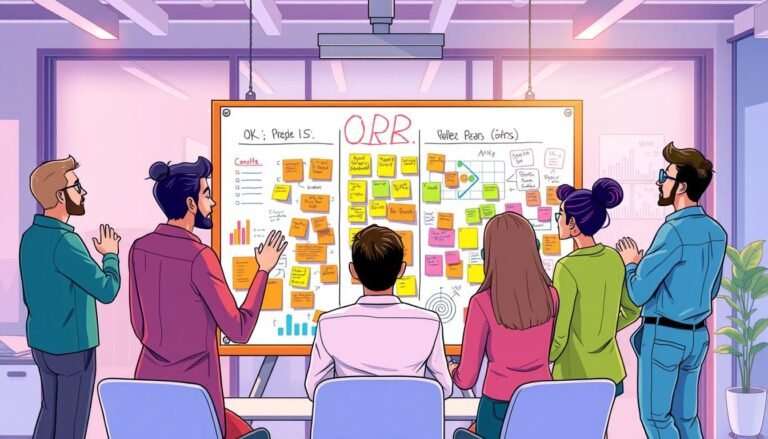Global Compliance and HR Regulations
In today’s world, businesses face many employment laws and policies. Global HR compliance is key for success in international markets. Companies must understand labor standards and follow rules in different places.
The rules for global compliance keep changing. For example, the GDPR has raised the bar for data privacy worldwide. Companies that don’t follow these rules can face big fines.
HR teams are vital for keeping up with these rules. They need to know about local laws, taxes, and data protection. Using global HR providers and keeping HR info in one place can help. It’s also important to tell employees about these rules.
The consequences of not following these rules are serious. Companies can lose millions of dollars each year. For example, ride-sharing companies in the U.S. were accused of not paying over $266 million in benefits.
Key Takeaways
- Global HR compliance is crucial for business continuity and growth
- GDPR sets strict standards for data privacy and protection worldwide
- Centralized HR information helps manage compliance across regions
- Employee misclassification can lead to significant legal penalties
- Effective communication of compliance policies is essential
- Partnering with global HR providers can simplify compliance management
Understanding Global Compliance: An Overview
Global compliance is key in international HR. It means following rules in many places to keep businesses and workers safe. Not following these rules can cost companies a lot, like $14.82 million a year for data protection issues.
What is Global Compliance?
Global compliance means following laws in countries where a company works. It deals with many business areas, like how a company is run and ethical behavior. For example, in India, the Payment of Gratuity Act says employers must give gratuity to workers with five years of service.
Importance of Compliance in HR
Compliance in HR is very important for a few reasons:
- It keeps companies safe from big fines and lawsuits
- It makes sure workers are safe and treated well
- It helps keep a company’s good name
- It makes running a business easier across borders
Key Challenges in Global Compliance
There are big challenges in global compliance:
- Different rules in each country
- HR systems that don’t work together well
- Language problems
- Deciding how to use resources
- Getting HR policies to work in different cultures
Discrimination laws vary a lot, like in the U.S. and the UK. Keeping up with new laws, like in Vietnam, Singapore, and Bangladesh, makes things even harder for international HR.
The Role of HR in Global Compliance
HR is key in making sure companies follow global rules. They handle everything from hiring to managing workers. They deal with fair hiring, keeping data safe, and making sure workplaces are safe.
Aligning HR Strategies with Compliance
HR teams must match their plans with rules to protect workers and keep workplaces fair. They do this by:
- Doing background checks the right way
- Checking if new hires are who they say they are
- Following laws against discrimination
- Keeping up with immigration and work rules
HR also makes sure companies follow rules on minimum wage, overtime, and benefits. In the U.S., the minimum wage is $7.25 an hour. But, some places like Oregon pay more, up to $14.70 an hour.
Training HR Teams on Regulations
It’s important to train HR on the rules they need to follow. This means they need to know about:
- The Fair Labor Standards Act (FLSA) rules on wages and hours
- OSHA’s safety standards
- The GDPR for data protection worldwide
- The Family and Medical Leave Act (FMLA) rules
Not following these rules can lead to big fines. For example, breaking FLSA rules can cost up to $2,451 per mistake. And, ignoring OSHA rules can lead to fines of up to $16,131 per mistake in 2024.
HR compliance is not just about following rules; it’s about creating a fair, safe, and productive workplace for all employees.
Key International HR Regulations
Global HR professionals deal with a complex set of international HR rules. These rules change from country to country, affecting how companies manage their workers worldwide. It’s key to understand these differences to keep up with laws and create a fair work environment.
GDPR: Implications for Global HR
The General Data Protection Regulation (GDPR) has changed data protection in the EU. It impacts how HR handles employee data, needing strict privacy measures. Companies must get proper consent and keep data safe.
FLSA: Fair Labor Standards Act Overview
In the U.S., the Fair Labor Standards Act sets labor standards. It sets a federal minimum wage of $7.25 per hour, but many states have higher rates. The FLSA also requires overtime pay for more than 40 hours a week. This is different from countries like the UK, where the minimum wage is £6.40 to £11.44 per hour.
ISO Standards for HR Practices
ISO standards offer guidelines for HR practices worldwide. These standards help organizations improve their HR processes and ensure consistency. They cover recruitment, training, and performance management.
Expanding globally brings challenges in managing HR compliance. Countries have unique laws on leave, benefits, and working hours. For example, U.S. maternity leave is unpaid and lasts up to 12 weeks, while the Netherlands offers 16 weeks of paid leave. Companies must understand these differences to comply with local laws.
| Country | Minimum Wage | Maternity Leave |
|---|---|---|
| United States | $7.25/hour (federal) | 12 weeks (unpaid) |
| United Kingdom | £6.40 – £11.44/hour | 52 weeks (39 weeks paid) |
| Netherlands | €1,934.40/month | 16 weeks (paid) |
Regional Variations in HR Regulations
Global employment laws and regional labor standards change a lot around the world. It’s key for HR pros to know these differences when managing international workplace policies.
North American Compliance Standards
In North America, the U.S. and Canada have different employment laws. The U.S. has at-will employment, but Canada doesn’t. Canada’s laws, like the Human Rights Act and Employment Equity Act, protect workers from discrimination.
European Union HR Regulations
The European Union has complex rules that countries interpret in their own ways. For example, France requires at least 25 days of paid vacation and 16 weeks of paid maternity leave. The General Data Protection Regulation (GDPR) also affects HR practices in the EU, requiring clear consent for employee data.
Asia-Pacific Compliance Challenges
Asia-Pacific countries have their own labor laws and cultural norms that affect HR. Workplace safety laws, minimum wages, and work hours vary a lot, making it hard for global companies.
| Region | Key HR Regulation | Compliance Challenge |
|---|---|---|
| North America | At-will employment (U.S.) | Differing standards between U.S. and Canada |
| European Union | GDPR | Varying interpretations of EU directives |
| Asia-Pacific | Unique labor laws | Cultural norms impacting HR practices |
HR leaders need to stay updated on laws by reviewing them weekly. They should use AI tools and work with local experts. A principle-based approach to policies helps companies follow global employment laws across different regions.
The Intersection of Compliance and Diversity
In today’s global workplace, diversity and inclusion are key for HR compliance. Companies must follow complex anti-discrimination policies while creating inclusive spaces. This balance is essential for legal compliance and business success.
Importance of Diversity in Global HR
Diversity in global HR is more than just following laws. It’s a strategic benefit. Companies with diverse teams are 25% more likely to be profitable. This shows the business value of diversity.
Anti-discrimination Laws Across Countries
Anti-discrimination laws differ worldwide, covering race, gender, age, and religion. In the U.S., Title VII of the Civil Rights Act bans employment discrimination. Companies must treat all employees fairly and equally, no matter their background.
Encouraging Inclusive Workplaces
Creating inclusive workplaces is more than just following laws. It’s about building a positive culture. Salesforce, for example, spent $17 million to equalize pay, boosting employee satisfaction and keeping them longer. This approach meets legal standards and improves the company’s image and performance.
“Diversity is being invited to the party. Inclusion is being asked to dance.” – Verna Myers
By focusing on diversity and inclusion, companies can build a more vibrant, innovative, and compliant global workplace. This approach not only meets legal needs but also boosts business success in a diverse world.
Compliance Technology: Tools and Solutions
HR technology has changed how companies handle compliance. Cloud-based systems now make it easier to manage rules and lower risks.
Cloud-Based Compliance Management Systems
These systems store data in the cloud and update it in real-time. This helps HR teams keep up with changing rules. They can also reduce manual work by 70%, giving more time for important tasks.
The Role of AI in HR Compliance
Artificial intelligence is changing HR compliance. AI tools can look through lots of data, find compliance issues, and offer solutions. This keeps companies ahead of the 46% of rules that change every year.
Data Protection Tools and Best Practices
Data protection tools are key for 39% of businesses worried about privacy. They protect employee data and follow rules like GDPR. Best practices include regular checks, training employees, and strong access controls.
| Tool | Starting Price | Key Feature |
|---|---|---|
| Gloroots | $29/month per contractor | Comprehensive compliance support |
| FlowTrack | $1.99/month per user | Affordable pricing model |
| Multiplier | $40/month for contractors | Global workforce management |
Using these HR technology solutions can greatly improve compliance management. It helps reduce risks and lets businesses grow and innovate.
Best Practices for Global HR Compliance
Global HR compliance needs a smart plan to deal with laws in many countries. Following HR best practices helps keep companies legal and ethical everywhere.
Developing a Compliance Framework
A strong compliance framework is key for global HR. It includes making company policies clear, keeping HR info in one place, and knowing the latest laws. Companies should make a detailed checklist for labor laws, data privacy, and special industry rules.
Regular Audits and Assessments
Doing compliance audits is vital to find and fix any issues. These audits should look at:
- Labor and employment laws
- Data privacy rules (like GDPR)
- Benefits and pay practices
- Internal policies and agreements
Not following these rules can lead to big fines. This has happened to big tech companies for GDPR mistakes.
Employee Training and Awareness
Training employees on compliance is key for a culture of following rules. Companies should keep them updated on:
- Local and global laws
- Company code of conduct
- Data protection practices
By following these HR best practices, companies can handle global compliance well. This reduces risks and promotes ethical business practices.
The Future of Global Compliance in HR
HR professionals are facing a fast-changing world of trends and rules. The shift to remote work has changed how we work, bringing new challenges in following global rules.
Emerging Trends in Compliance Regulations
Data privacy is now a major focus for HR teams everywhere. With rules like GDPR in Europe, companies must handle data carefully. The push for Diversity, Equity, and Inclusion (DEI) is also changing HR practices globally.
Preparing for Regulatory Changes
HR teams need to stay ahead of compliance issues. They must keep learning about new labor laws and standards. With more remote work and gig jobs, following wage and hour rules is more important than ever.
The Role of Remote Work in Compliance
Ensuring compliance with remote work is a big challenge for HR. Managing teams across borders and keeping data safe are key issues. Companies like Deel help with these problems, making it easier to hire and pay workers globally.
- Deel’s platform manages employees across 150 countries
- Companies can save over $210,000 in entity set-up costs per country
- Misclassification assessment provides 90% accuracy in worker classification
As work changes, HR must update their strategies to meet new rules. Using technology and staying up-to-date with global trends will help them manage HR compliance.
Case Studies of Successful Global Compliance
Global compliance case studies give us valuable lessons. They show how big companies use strong frameworks and tech to deal with tough rules.
Multinational Corporations Leading the Way
Big names in business are setting the standard for global compliance. A 2022 survey found that 75% of companies saw fewer fines after using labor compliance software. This is especially true in healthcare, where such tools cut costs by 25%.
A leading tech company is a great example. They focused on training and audits. This made their operations 30% more efficient and cut down on labor issues. Their story shows how important it is to have a compliance-focused culture.
Lessons Learned from Compliance Failures
Learning from compliance mistakes is just as important. In construction, ignoring rules can cost up to 10% of a project’s value. This shows the need for good risk management and clear talks.
A global retailer learned a hard lesson about anti-bribery. Their mistakes led to better training across the industry. This shows how key transparency is in keeping business practices honest.
| Industry | Compliance Impact | Cost Savings |
|---|---|---|
| Healthcare | 25% reduction in compliance costs | Projected 70% adoption by 2025 |
| Retail | 20% reduction in operational costs | 15% increase in customer foot traffic |
| Manufacturing | 30% reduction in labor-related incidents | $500,000 annual savings in penalties |
These stories show that global compliance needs strong leadership, regular training, and a culture of responsibility. By studying successes and failures, companies can create stronger compliance plans.
Resources for Staying Compliant
Global HR compliance is complex. It needs reliable resources and ongoing learning. HR pros must keep up with changing rules in different countries.
Online Training Platforms for HR Professionals
Online platforms have many HR compliance resources. They cover global regulations like labor laws and data protection. For example, knowing the difference between U.S. and Canadian employment laws is key for North American HR pros.
Industry Associations and Their Roles
Industry associations are crucial for HR. They offer info and networking chances. They host seminars on compliance best practices.
For instance, learning about U.S. and Canadian union membership rates is valuable. It shows the importance of these associations.
Government and Regulatory Bodies to Follow
Keeping up with government and regulatory bodies is key. The International Labour Organization sets global standards. National labor departments provide local guidelines.
For example, knowing California’s minimum wage is $16 per hour is important. It shows the need to follow local rules for compliance.
Source Links
- Best Practices For Global HR: How To Stay In Compliance
- Global HR Compliance: Challenges & How to Overcome Them
- Global HR Compliance: Navigating Employment Across Borders
- Global HR compliance pitfalls and how to overcome them
- The Role of HR in Compliance – IMA Financial Group
- HR Compliance: Guide for Employers in 2024 | Rippling
- HR Compliance: A Practical Guide for 2025
- Global HR Compliance: Common Risks and How to Avoid Them
- Comprehensive Guide to Global HR Compliance – Omni HR
- Council Post: 16 Steps To Ensure Compliance With Regional Labor Laws And Regulations
- HR compliance: the expert guide
- 16 Expert Strategies to Ensure Compliance with Regional Labor Laws | Crawford Thomas Recruiting
- <strong>HR Compliance and Global Mobility: A Crucial Intersection for Business Success</strong>
- The Intersection of Diversity Initiatives and Equal Pay Compliance: Strategies for Employers
- 10 Best Compliance Management Software | Rippling
- Compliance Tech Revolutionizes HR’s Approach to Legal Changes
- Top 14 HR Compliance Software In 2024 – hrtech blogs
- Auditing Global HR Compliance
- Legal Challenges in HR: Staying Ahead of Compliance in 2024
- The Enterprise Guide to Global Compliance Management in 2024
- Global HR Compliance and Mobility: Atlas and People Matters Webinar
- Successful Implementation of Labor Compliance Software in Different Industries
- Top 12 Compliance Concerns From Global Companies








